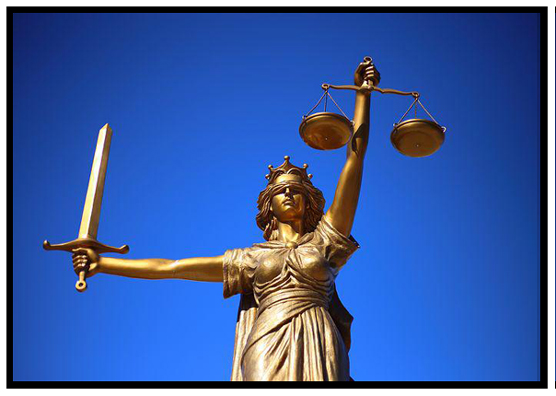Why Rules are Rules
Column #349 May 13, 2022
Can you imagine what life would be like without “rules?” According to Merriam-Webster, a rule is “a statement spelling out the proper procedure or conduct for an activity.” For certain, our mail-order business could not function if rules did not exist that worked consistently over time for both parties involved.
I’m certainly not a legal scholar. But in my youth I took introductory courses in business law, history, and Social Studies. Naturally that exposed me to the Declaration of Independence, the Constitution, Bill of Rights, Common Law, and even the Magna Carter. Unfortunately, when listening to folks these days it seems most of them have no clue about why the fundamental structure that formed our country made it so exceptional. For certain, they do not understand the differences nor combined mindsets of the Founding Fathers.
When it comes to rules, the Ten Commandments are probably the most famous even in our present-day, mostly-secular society. But they are not the foundation of our legal and political systems because they’re religious commandments.1
1. You shall have no other gods before Me.
2. You shall make no idols.
3. You shall not take the name of the Lord your God in vain.
4. Keep the Sabbath day holy.
5. Honor your father and your mother.
6. You shall not murder.
7. You shall not commit adultery.
8. You shall not steal.
9. You shall not bear false witness against your neighbor.
10. You shall not covet.
Under our constitutional government, if the first four commandments were laws, they would be declared unconstitutional! Marci Hamilton from FindLaw explains why in her review titled “The Ten Commandments and American Law: Why Some Christians' Claims to Legal Hegemony Are Not Consistent with the Historical Record.” She explains how the Magna Carta created the beginnings of the separation of powers and that the principles of the Magna Carta were brought to the New World and the colonies where they bore fruit in the United States in the Declaration of Independence, the Constitution, and the Bill of Rights. Then in addition, the vast majority of American law, including the rules against killing and stealing, was borrowed in whole or in part from the British common law.2 3
Only in our country’s Declaration of Independence from England are these words: “We hold these truths to be self-evident, that all men are created equal, that they are endowed by their Creator with certain unalienable rights, that among these are Life, Liberty and the Pursuit of happiness.”4
Here’s Wikipedia’s introduction to American Law.
“The law of the United States comprises many levels of codified and uncodified forms of law, of which the most important is the nation's Constitution, which prescribes the foundation of the federal government of the United States, as well as various civil liberties. The Constitution sets out the boundaries of federal law, which consists of Acts of Congress, treaties ratified by the Senate, regulations promulgated by the executive branch, and case law originating from the federal judiciary. The United States Code is the official compilation and codification of general and permanent federal statutory law.”5
In American law, there are fundamental distinctions between procedural law (which controls the procedure by which legal duties and rights are vindicated) and substantive law (the actual substance of law), which is usually expressed in the form of various legal rights and duties. These distinctions are why lawyers specialize in Criminal law and procedure, Civil procedure, Contract law, Tort law, Property law, and Family law.
In all cases, laws must not violate the Constitutions of the States in which the parties reside nor the Federal Constitution. This is why the powers governing our country and states are separated. The executive, legislative, and judicial branches of government are independent of the other for this reason. The Judicial Branch cannot make laws. Instead it interprets their constitutionality which is a check and balance on the legislature. It’s the Legislative Branch that makes laws while the Executive Branch enforces those laws. No where in the responsibilities of the Executive Branch does it state that the chief executive has the right to determine which laws to enforce and which ones not to. The role of the executive is to enforce all laws that are passed. The role of the judicial branch is to explain the laws, determine if the laws are constitutional, and regulate the federal court system.
Our nation’s Constitution forms the basic principles and laws of our nation by determining the powers and duties of the government and guarantees certain rights to the people. The supporting Bill of Rights further guarantees essential rights and civil liberties that the government cannot infringe on. The Constitution is our nation’s guiding light. It is not a living document that changes with the times. It’s the standard for interpreting the constitutionality of new laws and the laws that are currently on the books. When laws are reviewed, it’s the judiciary that determines if they are legal laws.6 7
Without the checks and balances, one or all branches of the government can go berserk and take control over the people. Governments tend to do that. It’s not a fantasy that monsters rise up in governments who confiscate all property to the point where the people own nothing and will be happy or else. It has happened over and over again throughout history.
This is why it is so important for all Americans to understand how our legal system works. It’s not a system to change, because to do so would change the country. Other countries function differently. So if someone doesn’t like the American way, that’s why they need to move to a country that’s more to their liking rather than burn our system down and ruin every citizen’s life in the process.
These days too many people believe that rules are supposed to be adjusted to suit their current morals, moods, and needs. We see it not only on the national stage but in customer relations too. Someone orders from us and, because something happens they don’t understand, they up and determine that the rules that have worked best for us and our customers for more than two decades must now change to fit their beliefs or perceptions. It happens when people get totally irrational. In this age, where so often we do business and communicate electronically, both sides must recognize the rules of the game or everything turns to dust.
It seems most Americans have either forgotten or they were never taught our country’s history. They don’t know the rules of the game therefore they think it’s just fine to make them up as they go along based on how they feel. But this means we end up living with folks who think relationships are merely a game where everyone can selfishly cheat, swindle, lie, and renege on any deal without consequences.
Amazingly, even so-called conservatives don’t really understand the legal structure of our nation. That’s because today’s beliefs are so radically skewed from that of our Founding Fathers who also had many differences. But, the differences of our Founding Fathers could easily fit within the bookends of today’s differences.8
To your health.
Ted Slanker
Ted Slanker has been reporting on the fundamentals of nutritional research in publications, television and radio appearances, and at conferences since 1999. He condenses complex studies into the basics required for health and well-being. His eBook, The Real Diet of Man, is available online.
Don't miss these links for additional reading:
1. Ten Commandments List from Bibleinfo
2. Constitutional Government from Britannica
3. The Ten Commandments and American Law: Why Some Christians' Claims to Legal Hegemony Are Not Consistent with the Historical Record by Marci Hamilton from FindLaw
4. The Declaration of Independence: What Does it Say? from the National Archives
5. Law of the United States from Wikipedia
6. The U.S. Constitution from Constitution Center
7. Bill of Rights from Constitution Center
8. Founding Fathers vs. Secular Statism by Johnny Davis from Standing for Freedom




